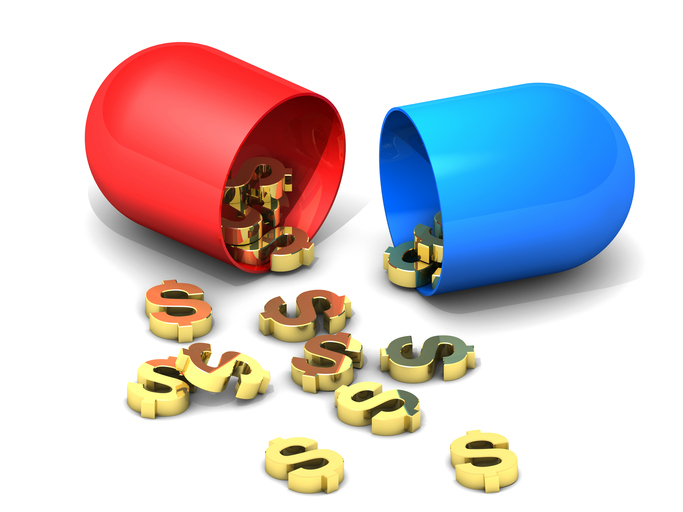
Third Harmonic pushes IPO window open with inflammation drug from Novartis – MedCity News

The IPO window has been closed to most biotech companies this year, but Third Harmonic Bio is pushing it open with a drug from Novartis that might work better than the wide selection of inflammation medicines already available to patients. The biotech has early clinical data showing signs of efficacy. Now the company wants to tap the public markets to finance further clinical development of the molecule in multiple inflammatory disorders.
Cambridge, Massachusetts-based Third Harmonic did not set any financial terms for the stock sale outlined in the preliminary IPO paperwork filed with regulators on Tuesday. However, IPO research firm Renaissance Capital said the offering could reach up to $150 million. Third Harmonic has applied for a Nasdaq listing under the stock symbol “THRD.”
Third Harmonic’s research focuses on the mast cell, a type of immune cell in the blood whose dysfunction is associated with the development of many allergic and inflammatory diseases. These cells are found throughout the body and are prominent on tissue with exposure to the external environment, such as the skin, respiratory tract, and gastrointestinal tract.
Lead Third Harmonic drug THB001 is a small molecule designed to block KIT, a cell surface receptor whose role is to regulate mast cells. In the IPO filing, the company notes that KIT inhibition has shown signs of efficacy in mast cell-mediated diseases such as asthma. A wide range of therapies already treat asthma and other inflammatory disorders, but Third Harmonic notes in the filing that many of these drugs are insufficient because they target the compounds that are produced by mast cells, such as histamines. For many diseases, multiple compounds are involved.
“As a result, we believe that targeting mast cells directly through highly selective inhibition of KIT is key to achieving the clinical efficacy needed for broad symptomatic relief across a range of allergic and other inflammatory disorders,” Third Harmonic said in the filing.
So far, Third Harmonic has tested its lead drug in a Phase 1a clinical trial. Though this study only enrolled healthy volunteers, the drug flashed indications of efficacy. The company reported that blood tests showed dose-dependent declines in tryptase, an enzyme released when mast cells are activated. Third Harmonic now aims to test whether its drug can treat chronic urticaria, an inflammatory skin condition characterized by hives and an itchy rash. The company said in the filing that it has submitted a clinical trial application in Europe for a dose-escalation Phase 1b study intended to show proof-of-concept in this disease. Data are expected in the second half of next year.
Asthma is the next disease target. Third Harmonic plans to start a Phase 1b study in the first half of 2023 and report data in the second half of 2024. The biotech is also eying the start of Phase 2 tests in chronic spontaneous urticaria. Those studies in the U.S. and Europe are planned for the first half of 2024. Third Harmonic describes its lead asset as a “pipeline in a product.” The company is exploring other diseases where stopping mast cell-driven inflammation may offer relief.
Third Harmonic has competition in its pursuit of a better drug for urticaria, a condition whose first line of treatment is antihistamines. Blocking KIT is the objective of Celldex Therapeutics drug barzolvolimab, formerly known as CDX-0159. The Hampton, New Jersey-based biotech has reached early clinical development in urticaria and other inflammatory disorders. But as an antibody, that drug must be given as an intravenous infusion. Third Harmonic hopes that the oral formulation of its KIT-blocking drug gives it an edge.
Third Harmonic is led by CEO Natalie Holles, who previously served as chief executive of gene therapy developer Audentes Therapeutics (now a part of Astellas Pharma). Venture capital firm Atlas Venture founded Third Harmonic in 2019. That year, it licensed THB001 from Novartis for $400,000 cash and an equity stake in the emerging biotech. Much more could be paid out depending on the progress of the research: $31.7 million is tied to in development milestones and up to $200 million in sales and commercialization milestones. Novartis would also earn royalties from the sale of any approved products.
Third Harmonic raised $155 million in its start, most recently a $105 million Series B round that was announced in February. Atlas is the largest shareholder with a 37.9% stake, according to the filing. The Novartis Institutes for BioMedical Research owns 9.4% of the company.
As of June 30, Third Harmonic’s cash position was $112.7 million, which the company said will be enough to fund operations for at least 12 months. Third Harmonic plans to use the IPO cash to continue clinical development of TBH100, specifically the Phase 1b study in chronic inducible urticaria and the Phase 2 test in chronic spontaneous urticaria. The cash will support the planned Phase 1b test in asthma. The biotech also states in the filing that the capital may be deployed toward the development or acquisition of other programs.
Photo: Devrimb, Getty Images